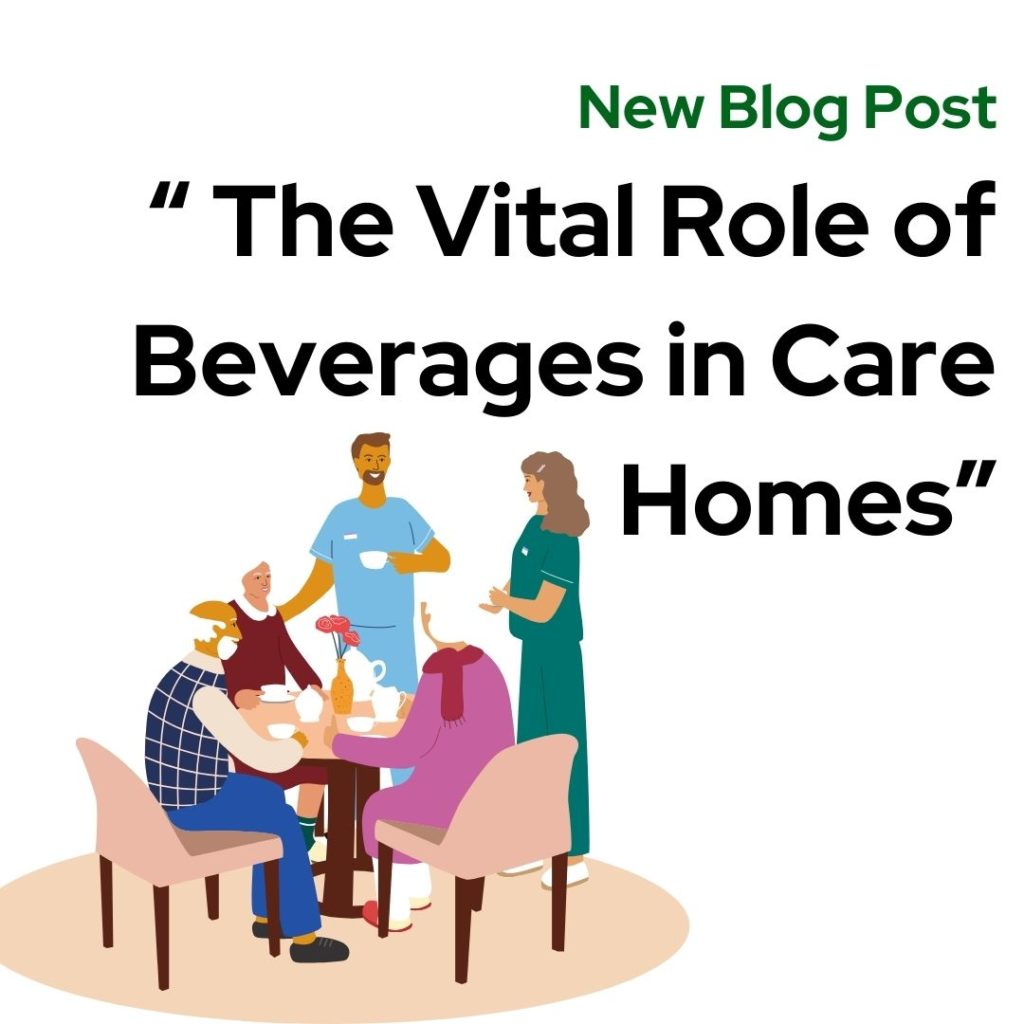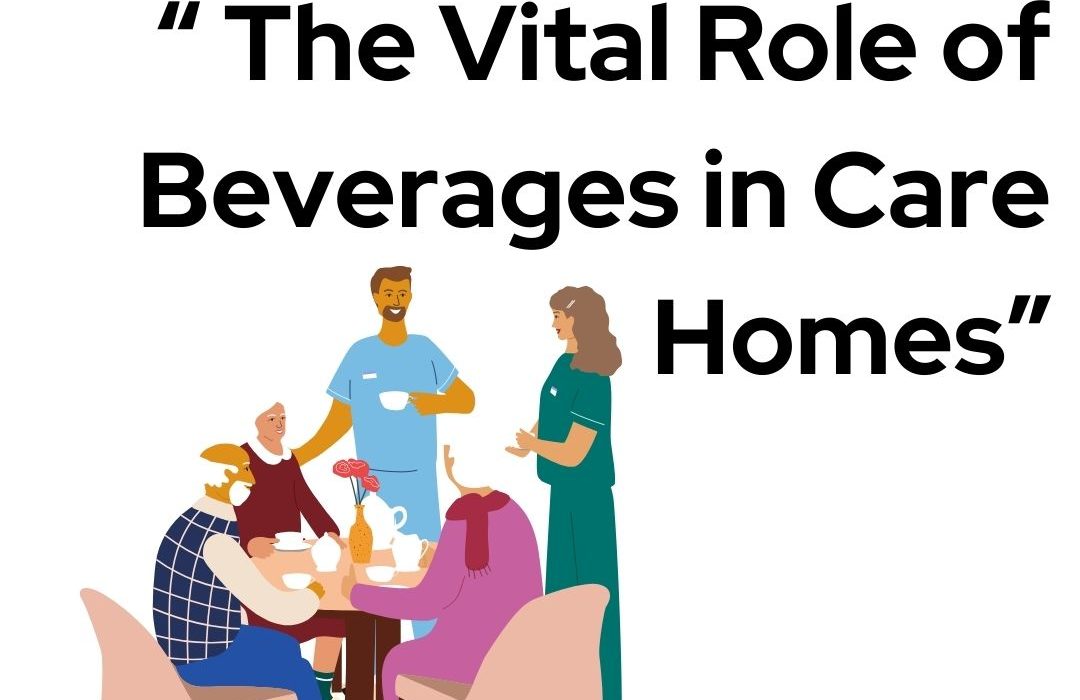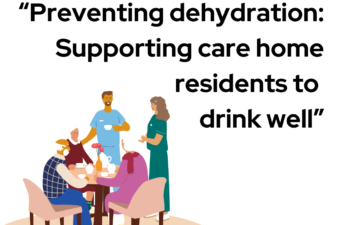
In care homes, ensuring the well-being of residents is a top priority. One often overlooked yet critical aspect of this is the provision of beverages. Proper hydration and the availability of enjoyable drinks, such as coffee and tea, can significantly impact the health and quality of life for care home residents. In this post, we will explore the importance of beverages in care homes, focusing on hydration, the benefits of coffee, and the overall role beverages play in resident care.
Hydration: A Cornerstone of Health
The Importance of Staying Hydrated
Hydration is crucial for everyone, but it is especially vital for elderly individuals. As we age, our sense of thirst diminishes, and our bodies are less efficient at conserving water. This makes older adults more susceptible to dehydration, which can lead to serious health issues such as urinary tract infections, kidney stones, and even confusion or delirium.
In care homes, staff must be vigilant in encouraging and monitoring residents’ fluid intake. Regular hydration helps maintain bodily functions, supports cognitive abilities, and can improve mood and energy levels. Adequate hydration also aids in digestion and can prevent constipation, a common issue among the elderly.
Recognising Dehydration
Care home staff should be trained to recognise the signs of dehydration, which include dry mouth, sunken eyes, dark urine, and lethargy. Proactive measures, such as offering fluids regularly and making hydration an integral part of the daily routine, can help prevent these issues.
Coffee: More Than Just a Morning Ritual
The Benefits of Coffee
Coffee is a beloved beverage worldwide, and its benefits extend beyond a simple caffeine boost. For care home residents, coffee can offer several advantages:
- Cognitive Benefits: Studies have shown that coffee consumption can improve cognitive function and may reduce the risk of Alzheimer’s and Parkinson’s diseases. The antioxidants in coffee can help protect the brain from damage.
- Social Interaction: Coffee time can be a social event, providing opportunities for residents to gather, chat, and form connections. This social interaction is crucial for mental health and can combat feelings of loneliness and isolation.
- Physical Benefits: Moderate coffee consumption has been linked to a lower risk of certain diseases, including type 2 diabetes and some cancers. The caffeine in coffee can also enhance physical performance by increasing adrenaline levels and breaking down body fat.
Creating a Coffee Culture
To maximise the benefits of coffee in care homes, creating a positive coffee culture is essential. This can be achieved by:
- Designating a Coffee Area: Setting up a cosy coffee corner with comfortable seating can encourage residents to take breaks and enjoy a cup of coffee together.
- Offering Variety: Providing a range of coffee options, including decaffeinated choices, can cater to different preferences and health needs.
- Involving Residents: Allowing residents to participate in making coffee, whether by choosing their preferred brew or helping with the preparation, can foster a sense of independence and involvement.
The Role of Other Beverages
Tea and Herbal Infusions
Tea is another popular beverage with numerous health benefits. Green tea, for example, is rich in antioxidants and can boost metabolism, while herbal teas like chamomile and peppermint can aid digestion and promote relaxation. Offering a variety of teas can cater to different tastes and provide health benefits.
Fruit Juices and Smoothies
Natural fruit juices and smoothies are excellent sources of vitamins and hydration. They can be especially beneficial for residents who may have difficulty eating solid fruits. Including these beverages in the daily menu can help ensure residents receive essential nutrients.
Water: The Ultimate Hydrator
While coffee, tea, and juices are important, plain water remains the best way to stay hydrated. Providing easy access to water throughout the care home, whether through water coolers, pitchers in rooms, or regular rounds by staff, is essential.
Implementing a Comprehensive Beverage Programme
To fully leverage the benefits of beverages, care homes should consider implementing a comprehensive beverage programme. This can include:
- Scheduled Beverage Times: Setting specific times for offering drinks can help ensure residents are regularly reminded to hydrate.
- Personalised Hydration Plans: Recognising that each resident has unique needs, personalised hydration plans can be developed. This can involve tracking individual fluid intake and preferences.
- Staff Training: Educating staff on the importance of hydration and how to encourage fluid intake can improve overall effectiveness.
- Resident Involvement: Engaging residents in the planning and selection of beverages can increase their interest and participation.
Conclusion
Beverages play a critical role in the health and well-being of care home residents. From ensuring proper hydration to providing the numerous benefits of coffee and other drinks, a well-thought-out beverage programme can significantly enhance the quality of life for elderly individuals. By prioritising hydration, offering a variety of enjoyable drinks, and fostering a positive culture around beverage consumption, care homes can support the health, happiness, and overall well-being of their residents.




